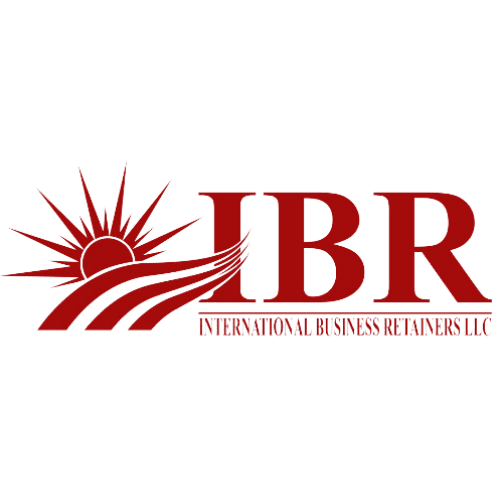
The Reason Accounting Is Known as Language of Business
The Reason Accounting Is Known as Language of Business
The usage of financial statements, the significance of a common language and set of standards, and the function of accounting in decision-making will all be covered in this article’s discussion of why accounting is regarded as the language of business.
Statements of Finance
One of the main reasons accounting is called the “language of business” is because of financial statements. These statements are the main tool used to convey financial information to stakeholders and give a clear and succinct picture of a company’s financial performance and condition.
A company’s assets, liabilities, revenues, and expenses are shown in a snapshot by financial statements like balance sheets, income statements, and cash flow statements. These statements also serve as a historical record of a company’s financial activity throughout time. This offers a consistent, precise, and thorough method of sharing financial data.
Because they offer the data required to assess a company’s financial performance and position and make well-informed decisions regarding operations, finance, and investments, financial statements are also essential for decision-making. Financial statements are also a crucial compliance tool since they contain the data required to satisfy legal and regulatory obligations and are audited and verified to guarantee correctness.
A Common Language
One of the key components of accounting that leads to its standing as the “language of business” is a common language. A standardized set of vocabulary, concepts, and reporting techniques for financial data are provided by accounting, allowing various stakeholders to comprehend and compare financial data from various businesses and sectors.
As an example, all organizations, regardless of size or industry, employ a cash flow statement, income statement, and balance sheet. They offer comparable details regarding the performance and financial status of the business. This facilitates the understanding and comparison of financial data from various companies by stakeholders, including creditors and investors.
Making Decisions
The financial data required to make well-informed decisions about operations, funding, and investments is provided by accounting. The information and analysis required to assess a company’s financial performance and position as well as pinpoint areas for expansion and development are provided by financial statements and other accounting reports, including budgets and economic forecasts.
To evaluate a company’s liquidity and solvency, for instance, a balance sheet gives details on its assets and liabilities. A company’s revenues and expenses are detailed in an income statement, which is crucial for assessing its profitability. Information regarding a company’s cash inflows and expenditures is provided by a cash flow statement, which is crucial for evaluating its capacity to fulfill its financial commitments.
The compliance
Accounting provides precise financial data that can be audited and validated, which aids businesses in meeting legal and regulatory requirements. A company’s financial activity over time is documented in financial statements, such as cash flow, income, and balance sheets, which are audited and verified to guarantee accuracy.
Professional organizations like the International Accounting Standards Board (IASB) and the Financial Accounting Standards Board (FASB) have developed accounting standards and principles that serve as a foundation for adhering to accounting and financial reporting regulations. These guidelines and standards contribute to the accuracy, dependability, and comparability of financial data across various businesses and sectors. The following are a few of the most widely used accounting compliance standards:
● Generally Accepted Accounting Principles (GAAP): GAAP is the collection of regulations and principles that US corporations must adhere to while creating their financial accounts.
● International Financial Reporting rules (IFRS): Developed by the International Accounting Standards Board (IASB), IFRS is a set of accounting rules that are utilized in more than 150 nations across the globe.
● Sarbanes-Oxley Act (SOX): This federal law mandates that publicly traded corporations set up internal controls and financial reporting systems and have an independent auditor assess their financial statements.
● The Foreign Corrupt Practices Act (FCPA): This federal statute forbids that American corporations bribe foreign officials.
● The Basel III Accord: Basel III is a global banking regulatory system designed to enhance banks’ oversight, regulation, and risk control.
● Anti-Money Laundering (AML) regulations: AML regulations are intended to identify and stop terrorist financing and money laundering.
● The Dodd-Frank Wall Street Reform and Consumer Protection Act: This federal law seeks to improve financial market transparency and shield consumers from financial fraud.
Budgeting and Planning
One of the key components of accounting that contributes to its standing as the “language of business” is planning and budgeting. Accounting offers the financial data required to determine the resources required to meet a company’s goals and objectives and to assess how well it is performing in relation to those goals. Since it enables businesses to effectively allocate resources and plan for future growth, this information is crucial for efficient business administration.
Another essential tool for planning and forecasting is budgeting. It assists in determining the resources required to meet an organization’s objectives and evaluating its performance in relation to them. Businesses are able to recognize possible issues and promptly modify their plans by developing a budget.
In conclusion
Accounting is referred to as the “language of business” since it facilitates the exchange of financial data about a firm or organization. Accounting is referred to as the “language of business” for a number of reasons, including financial statements, a single language and set of standards, decision-making, compliance, planning, and budgeting.
These accounting features give stakeholders a clear and succinct view of a company’s financial performance and situation, empowering them to make educated decisions, adhere to legal and regulatory requirements, and plan for future expansion.
IBR GROUP ACCOUNTANTS can assist you in solving your account related issues in business We are top accounting and bookkeeping service provider in dubai, uae with expertise of more than 10 years. We also provide services like VAT, Corporate Tax, Feasibility study, Company formation, excise tax and many more. Contact our experts now and get consultation.
